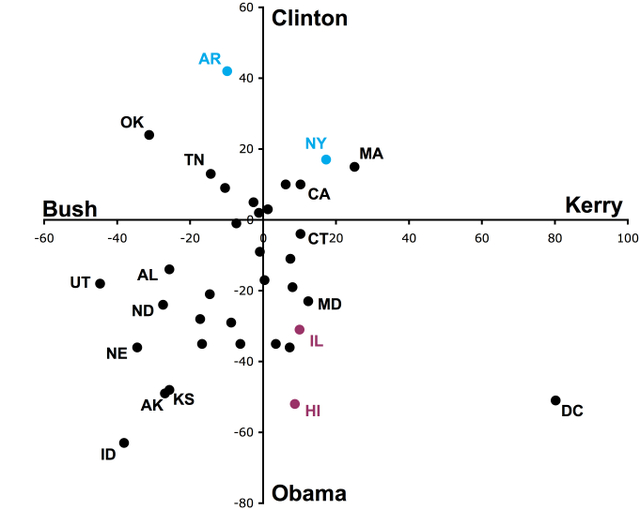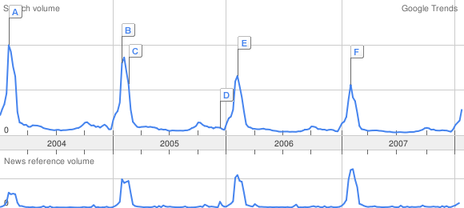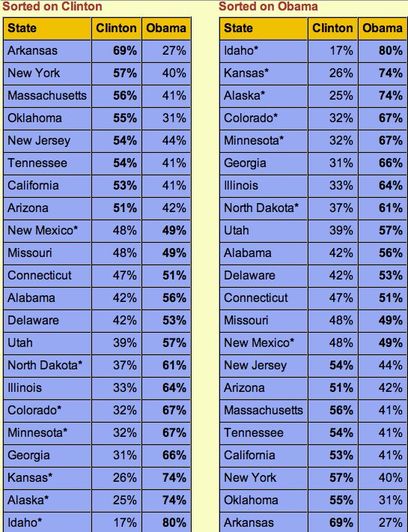by Sara
Again, fair warning, what I will describe is the way the DFL in Minnesota does things. Other states have different rules. None the Less every state has a Platform Committee and a Platform Commission, and some sort of process to recommend policy to the National Convention. But let's start at the top -- the Platform Committee for the 2008 Race -- how will it be done.
First of all, the Convention Platform will be written by a committee of over 100 persons, 2 from each state and territory, one male, one female. The Platform Committee delegates are selected by vote from among the elected and super delegates by state. In most cases this will reflect the outcome of the primary and caucus system, with the eventual nominee holding the majority of Platform Committee members. Thus the nominee usually controls the content of the Platform, but outside alliances are possible.
I'll get to the complex system we have for building our state platform later, but that said, if the state platform is adopted by the time the Platform Committee meets, they get a copy of each state's work, which is a recommendation and not something they are obliged to adopt. All states must classify their resolutions within one of fourteen areas, things like Labor Policy, Agriculture and Food Policy, World and Foreign Affairs, Veterans Issues, Environment and Conservation -- and someone at the staff level re-organizes the state's work, highlighting areas of agreement and disagreement. All Committee members get this product. Ideas that come from many states have more weight than single state matters.
Then the Platform Committee holds hearings, in recent years they have traveled to various parts of the country, breaking down into sub-committees. This is where our party interest groups get involved, they are invited to make presentations at hearings, agree or disagree with state proposals, point to legislative efforts, push priorities, and otherwise lobby the Committee to accept their language on critical issues. For groups that want to be heard it is important to know how to lobby the committee for real hearing time. Eventually the Committee votes, plank by plank on language and then the whole intent of the plank. What's agreed to becomes the Majority Report to the Convention. To have a floor fight over a plank, you have to establish strength for a minority report in the committee (I think it is 1/3rd disagreement with the plank as worded), and then to get a minority report to the floor, you have to get delegate signatures to support the minority report at a fairly high level -- in recent conventions it has been about 1500 delegates out of 4000 total. In otherwords, our current rules predicate against minority reports and floor fights. If a coalition exists that appears to be reaching the point where a floor fight might happen -- usually a compromise is negotiated. Television and print reporters usually interpret a floor fight as party disorganization -- and these days, candidates try to avoid this. But in most years, C-Span covers Platform Hearings and plank mark-up, so if you want to follow the arguments, that is where to find it. This year I anticipate the only issue that could lead to a floor fight would be withdrawal from Iraq -- but I expect a compromise on language.
At the state level the ordinary party activist has much greater opportunity to influence the platform, but only if one understands the process and is very organized. In Minnesota, we introduce resolutions at the Precinct Caucus, and if they are accepted, they move up to the next level, the Legislative District Convention, which establishes a platform committee, and presents the platform to delegates as a multiple choice test, machine scored. Delegates score the resolutions from strongly agree to strongly disagree, and those that receive a high strongly disagree score, usually end up being debated on the floor. (why have a floor debate if everyone basicly agrees on things?) We also have something called the ongoing platform -- resolutions passed with great strength in previous years -- that must have majority strength from opponents to come up again. (We don't debate Abortion any more.).
At any rate, then the Congressional Districts take up all the platforms written by counties and legislative districts within themselves, and they repeat the process. Those resolutions where there is disagreement are likely to receive floor debate and a vote, those with strong agreement go directly to the State Platform Committee.
Understood properly, an activist or activist groups prepare resolutions in advance, get them introduced at all precincts, and sent up the system to the Legislative District Platform, on to the CD Platform, and then on to the State Party. You do this in all eight Congressional Districts, run them up the system, and it will likely show up in the State Platform. These days, for instance my E-Mail includes about twice a week, proposed resolutions from the Progressive Caucus. You can suggest edits, and they are being debated on line. People will then take them to Precinct caucus, introduce them, and start them up the system. (In the old days we had to go to meetings, and mimeograph the draft wording and then edit it again.) Labor and Education are doing the same thing with virtual meetings. The advantage thus goes to organized efforts. In fact this is one of the primary ways movements that are outside the party can influence the party direction in policy. Again, victory goes to those who are organized, and get their resolutions highly ranked in all Congressional District Platforms.
At the State Platform level, all resolutions that reach the committee are examined to see whether they are essentially the same as existing parts of the ongoing platform. If there are critical differences, the State Convention might (depending on resolution strength) be asked to modify the ongoing platform. Those essentially similar to existing planks go on a list to be reaffirmed by the convention.
New items then get sorted into the 14 areas of the Platform form, and then ranked by strength (came up in 7 of 8 Congressional Districts for instance). Those highly ranked then get examined for clarity of language, (does the resolution call for money, for legislative action, etc.?) Once final wording is established, it goes into the platform document which will be voted on using the multiple choice method, by all delegates to State Convention. Only those resolutions that either change the ongoing platform or score in the middle (half way between Strongly Agree and Strongly Disagree) end up as Floor debate items. When resolutions arrive advocating opposite policy, they get set up for votes as minority/majority items, with delegates required to select either A or B, and they are advised as to the strength behind each alternative. Party Rules ended up putting a ceiling on the number of resolutions that can be accomodated in any one year (a number selected because of the technology of machine scoring -- 225). There is also a garbage resolution at State Convention, that is removal of old resolutions in the platform made irrelevant because of Political Action. If legislation gets past and becomes law, we remove advocacy for it from the final document.
The State Platform Committee can also hold hearings on strongly disputed resolutions, and then offer the delegates a summary of the positions. This happened in 1984 when I co-chaired State Platform, and we got organized resolutions on the Israeli Occupation of Palestinian Territory. One CD sent forward a resolution to Abolish Israel (for those who want to know, the 7th, now represented by Colin Peterson, Chair of House Agriculture) three placed priority on Israeli Security, and demanded a change in the 67 borders, and three called for recognition of Arafat's PLO Government. So we had a hearing, I got the "joy" of writing up the report to the conflicting resolutions, and in the end, nothing passed. Two years later it came back again -- same division, same arguments, again nothing passed. Then in 88 the supporters of Arafat changed tactics, and offered language about recognizing "Palestine Nationhood" -- and as far as I know we now have two policies -- Security for Israel and Nationhood for Palestine. Since 88 the only thing that has changed is support first for Oslo and then support for diplomacy. This year sounds like a new effort so I have heard. Four years ago the party resolved after several efforts, to get out of NAFTA, and two years ago compromise language was a huge fight, and I expect it again this year. We are also promised a fight on land use vis a vis raising corn for Ethanol, and state tax benefits attached to Ethanol production. And yes, we probably will put in our platform strong language against any use of troops outside the US without explicit Congressional Action. I don't know what the Gitmo resolution will look like -- but there will be one, and there is also an anti-torture resolution that also restores Habeus Corpus. I am sure these will pass without much opposition.
Overall, Platform obligates no DFL elected official to vote according to a resolution -- but in a limited number of cases, elected officials have suffered for going against the platform. For after the State Convention, the Platform Committee reorganizes itself into a Commission, and turns into a lobby for the party for these resolutions, and the ongoing platform, and from time to time makes life difficult for elected officials who fail to see the resolutions as the sentiment of the party as they vote. Officals have been known to fail to get endorsement for re-election because they have ignored the platform, to have endorsement fights, to have trouble raising money. Any effort to seek higher office can be impacted by being in opposition to a strongly supported plank.
In Primary States party activists don't have a similar point of entry for resolutions, and a clean way of measuring the strength of issues at all levels, and rules for actually having delegates vote on Platform. They generally write a platform, but elect representatives from county organizations to do the job, and thus lack the means for opening the party up to the movements outside of the party that need political support to accomplish their interests. In the end, I think bringing movements into the Platform Process through precinct caucus is healthy for the party. I know policy on Civil Rights, Welfare, Environmental Issues, Feminist issues, Gay and Lesbian Rights and much else came into the party in this way -- and we are richer for it.



